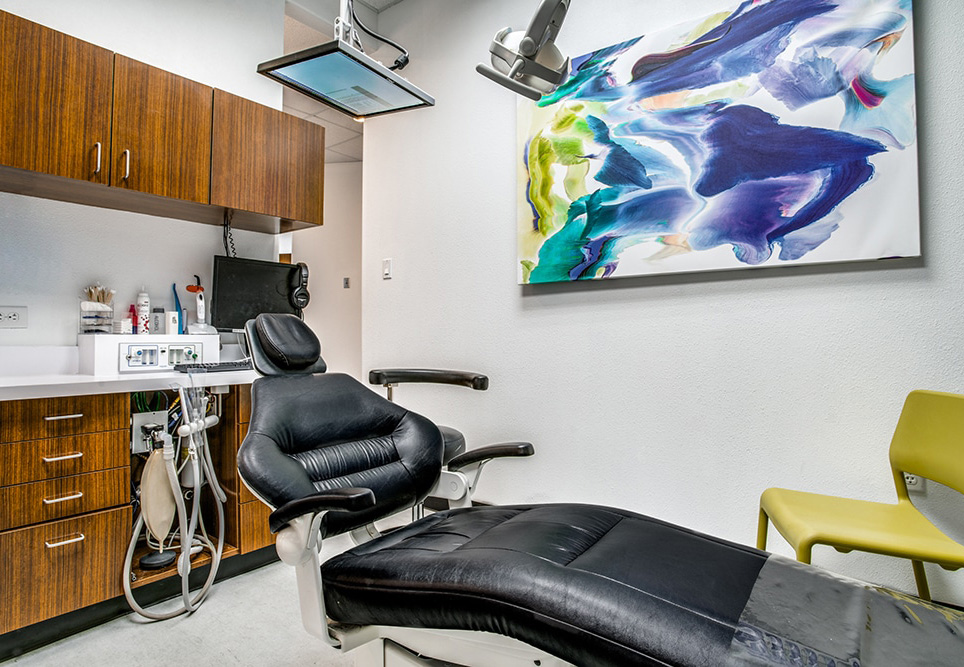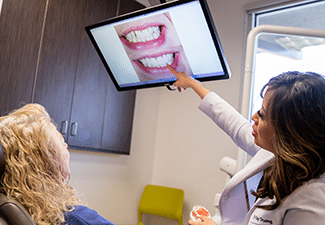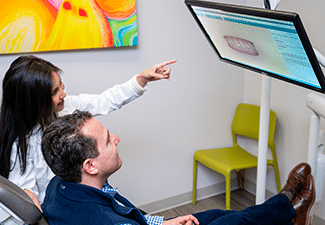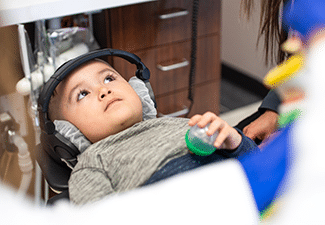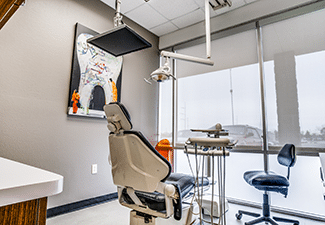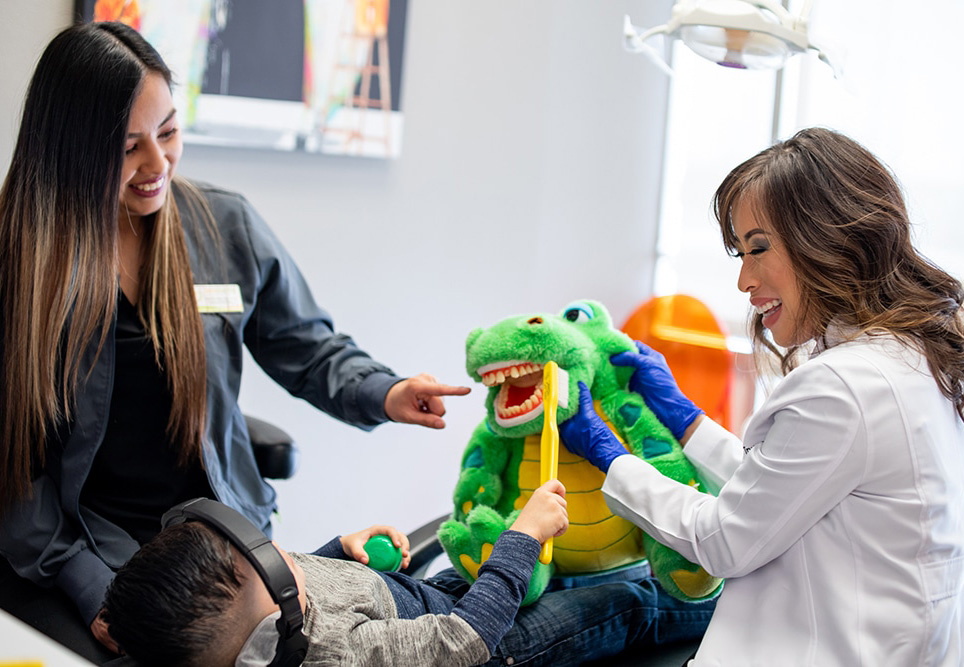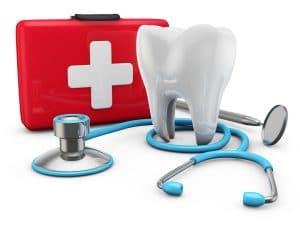
Staying home and closing non-essential businesses is an excellent way for our community to work together and help slow the spread of COVID-19. To help, we’re now only offering treatment on a case-by-case basis for emergency dental needs, such as cracked or chipped teeth, or serious discomfort. In today’s blog, we’re going to look at the emergency services we offer residents of Dallas and Richardson, TX, and explain when you should consider contacting our team for an appointment. We’re also going to over a few ways you can help protect yourself and your family during this time!
What is Emergency Dentistry?
We consider a dental emergency any injury or pain in the teeth, gums, or oral structures that is not life-threatening. If the issue is potentially life threatening, immediately call 911. Otherwise, please give our team a call. We will ask a few questions to assess your injury, and schedule a time to see you at the office to provide treatment. Remember, ignoring damage or discomfort could allow serious complications, such as severe infections or even the loss of one or more of your natural teeth.
Common Emergencies
If you experience a toothache, or severe sensitivity, that doesn’t pass after a day or two, then please let us know. These aches could be linked to tooth decay, or possibly an infected tooth, and treatment is necessary to prevent the tooth from being lost. If you chip or crack a tooth, even if the damage is minimal, again contact our team. Even minor damaged could expose the sensitive inner structure to harmful bacteria, creating an opportunity for cavities and infection to develop. If you have an object stuck between your teeth that floss cannot remove, contact our team and don’t use anything other than floss to try and dislodge it, otherwise you risk damaging gum tissues. Other common emergencies include loose or lost dental restorations, like fillings or crowns, or damaged orthodontics.
Responding to Your Injuries or Poor Oral Health
If you injure a tooth, see if you can recover any pieces and if so, bring them with you in a small container or wrapped in tissue. If a tooth is knocked-out completely, pick it up by the crown, never touch the root, and place it in a glass of milk or salt water and bring it with you. If you have bleeding due to an injury, lost tooth, or a serious ache, use a washcloth or gauze to stem it. To avoid facial swelling, place a cold compress or ice pack against the side of the face. You should rinse your mouth with warm water and also take a pain reliever to ease discomfort until we can see you to administer treatment. If you have a loose or lost dental restoration, avoid consuming sugary foods and drinks as the exposed tooth is very sensitive and this could cause discomfort. Responding quickly and letting us know about an injury is essential for preventing major complications or the loss of a tooth, protecting your smile.
Possible Treatment Options
For minor damage, we may use dental bonding to repair a tooth in one visit. The procedure employs the same metal-free composite resin used in our tooth-colored fillings. For more substantial damage, or for a decayed or infected tooth, we may perform a root canal to remove any infected tissues, and then cap the tooth with a lifelike dental crown. When possible, we try to complete procedures in a single visit to limit your time out and about during the pandemic. We also take other precautions, such as cleaning commonly touched surfaces in between each visit throughout the office, wearing masks and gloves, and scheduling appointments so you have the waiting room to yourself. If you experience symptoms, such as shortness of breath, a dry cough, or fever, please let us know and avoid coming to the office or going anywhere else until your doctor says you are clear.
Keeping Your Smile Strong
At home, try to avoid sugary foods and drinks, as these items feed harmful bacteria and increase the risk of plaque buildup and weakened outer enamel can lead to a higher likelihood of tooth decay and gum disease. We also suggest people of all ages brush their teeth in the morning and again at night for about two minutes each session. Be sure you use a fluoride toothpaste, as this helps strengthen your outer enamel! People need to floss before bed too, as this removes what a toothbrush alone cannot reach. To help reduce your risk of contracting COVID-19, be sure you wash your hands frequently for 20 seconds using soap and warm water. You want to reach every surface, including the backs of your hands and your fingertips! Limit your excursions for supplies and avoid crowded areas. When heading outdoors, practicing social distancing by staying at least six feet away from others. Clean and disinfect items coming into your home. If you begin to experience symptoms of the disorder, which we mentioned above, call your doctor before showing up at the office or emergency room. These actions help slow the spread of the disease, which keeps the hospitals in our community from being overwhelmed and protects the health and safety of our essential workers.
If you have any questions about keeping your smile strong, or about our approach to treating dental emergencies, then contact our team today to learn more. We miss you and can’t wait to see you and your family again for treatment!
Do You Need a Restorative Treatment?
While we cannot offer treatments for cosmetic or preventive concerns, we’re still able to provide emergency treatment for damage or issues like tooth decay or dental infection. We’re still here to help you enjoy a healthy and attractive smile, albeit in a temporarily limited capacity. For more information on addressing issues with your smile, then schedule a consultation by calling the Viva Dental Family Dentistry office nearest you at (214) 337-7800 (Dallas) or (972) 437-6000 (Richardson). We’re proud to serve residents of Dallas, Richardson, and surrounding communities!







